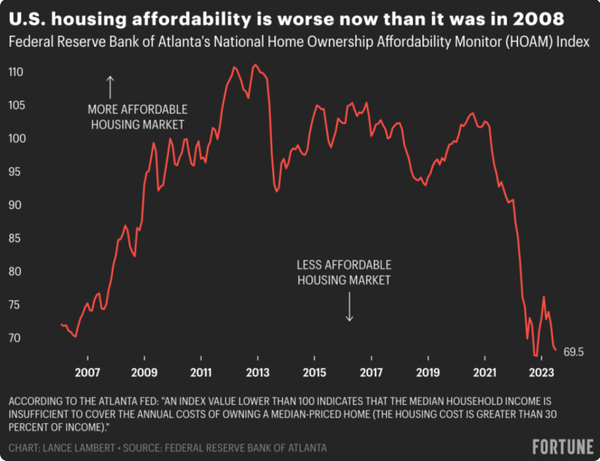Hidden Down Payment: How to Strategically Leverage Your 401k for Home Purchasing in a Hot Market
Are you a prospective homebuyer eager to step into the realm of real estate? Perhaps you're feeling the pressure of saving up for that all-important down payment, or are worried that you have to sell your current before making an offer on the next one due to the competitive nature of the current market stigma against making “contingent” (upon sale) offers. If you find yourself in this situation, fear not! There may be a hidden asset right within your grasp – your 401k.
Many people view their 401k as a sacred nest egg, one to be left untouched until their golden years. However, the rules surrounding 401k accounts allow for certain exceptions to be made to tax liability and early withdrawal penalties. Utilizing a 401k loan for a down payment for the purpose of securing a primary residence is one such exception! This strategy can be an effective way to bridge the financial gap between your aspirations and your current savings. But before we dive into the details, let's explore what a 401k loan entails.
A 401k loan, as the name suggests, allows you to borrow money from your own retirement savings. The amount you can borrow is typically limited to a percentage of your account balance (typically 50%), whether you’re fully vested, or a specific dollar amount. The loan must be repaid within a specified timeframe, and with interest. The interest you pay on the loan goes back into your own account, making it a relatively low-cost borrowing option compared to other forms of loans. When YOU play the banker, you WIN!
Right now, one of the most significant advantages of leveraging a 401k loan for a down payment is the potential to make non-contingent offers (where you must successfully sell your current home, in order to have proceeds available for the purchase) in a competitive seller's market. In our market, where multiple buyers are vying for limited inventory, sellers often prefer non-contingent offers as they are more likely to close quickly and smoothly. By utilizing a 401k loan, if you’ve got enough to work with, you can bridge the gap between representing your offer as "contingent upon securing financing" and making it "non-contingent," thereby increasing your chances of having your offer accepted. Then, once you’ve successfully sold your current home, you can easily pay yourself back the proceeds you borrowed from yourself. Nice move!
Additionally, increasing your down payment allows you to pay less Mortgage Insurance, and in some cases, can improve your interest rate, thereby offsetting some of the cost associated with borrowing it. Those funds can also be used to cover closing costs, or pay points toward lowering the rate on your first mortgage as well.
Tight on your debt-to-income ratio? (Measured as the amount of monthly income you make, vs monthly credit debt obligations + proposed total mortgage payment.) There are limits that lenders have in place for these (generally between 45 and 50%) and in the current climate, affordability is something that can be a limiting factor for how much home you can purchase. This is especially frustrating for married people who have two incomes, or partners that help with the rent/payment, but won’t be on the mortgage together with the buyer due to either credit or income issues. A 401k can help with this as well! The reason for this, is that underwriters do not include the resulting debt from the 401k loan against your DTI calculation. While this may seem counterintuitive, its an advantage that is often overlooked when people “push button, get mortgage.” Yet another reason to avoid online lenders, as price vs. advice makes a big difference in the mortgage world.
There are LOTS of creative ways you can work with these available funds, and being in contact with a licensed Mortgage Advisor will help you sort out and compare different scenarios, while weighing the tradeoffs.
It's important to approach this strategy with caution. While a 401k loan can provide a valuable opportunity to secure a down payment, it does come with certain risks and limitations. For instance, if you are a first time homebuyer, and leave your job before repaying the loan, you may be required to pay it back in full immediately or face paying taxes on the amount as income. Additionally, if you fail to repay the loan within the specified timeframe, it could be treated as an early withdrawal, resulting in a penalty somewhere in the neighborhood of 10%. Therefore, it's crucial to thoroughly understand the terms and conditions of your 401k loan and consider the potential long-term impact on your retirement savings.
Here are a few key considerations to keep in mind when contemplating a 401k loan for a down payment:
Key Considerations when Utilizing a 401k Loan for a Down Payment:
Loan Terms and Repayment: Familiarize yourself with the specific rules and regulations regarding 401k loans within your retirement plan. Understand the maximum loan amount, interest rate, repayment period, and any associated fees. Evaluate your ability to repay the loan within the specified timeframe, considering your current financial situation and budget.
Impact on Retirement Savings: Consider the long-term implications of borrowing from your 401k. While a 401k loan can provide immediate funds for a down payment, it reduces the amount of money invested in your retirement account, potentially impacting your future savings and growth. Evaluate whether the potential benefits outweigh the potential drawbacks and consult with a financial advisor if needed.
Job Stability: Assess your job stability and the potential impact on the 401k loan. If you leave your job before repaying the loan, you may be required to pay it back in full immediately or face penalties. Evaluate the security of your employment and factor in any potential career changes or transitions in the near future.
Tax Implications: Understand the tax implications associated with a 401k loan. While the loan itself is not considered taxable income, failure to repay the loan within the specified timeframe could result in the loan being treated as an early withdrawal, subjecting it to income taxes and potential penalties. Consult with a tax professional to fully understand the tax consequences of utilizing a 401k loan for a down payment.
In conclusion, leveraging your 401k through a loan for a down payment can be a valuable strategy for prospective homebuyers looking to enter the real estate market. It can bridge the financial gap, accelerate your path to homeownership, help you afford more home, and even give you an advantage in a competitive seller's market.
If you’re interested in gaming it out to see what the numbers might look like in your specific situation, Bryce Elder @ Sunrise Mortgage Group would be happy to consult with you on this topic using some of the most advanced tools available in the marketplace.

Recent Posts










GET MORE INFORMATION

